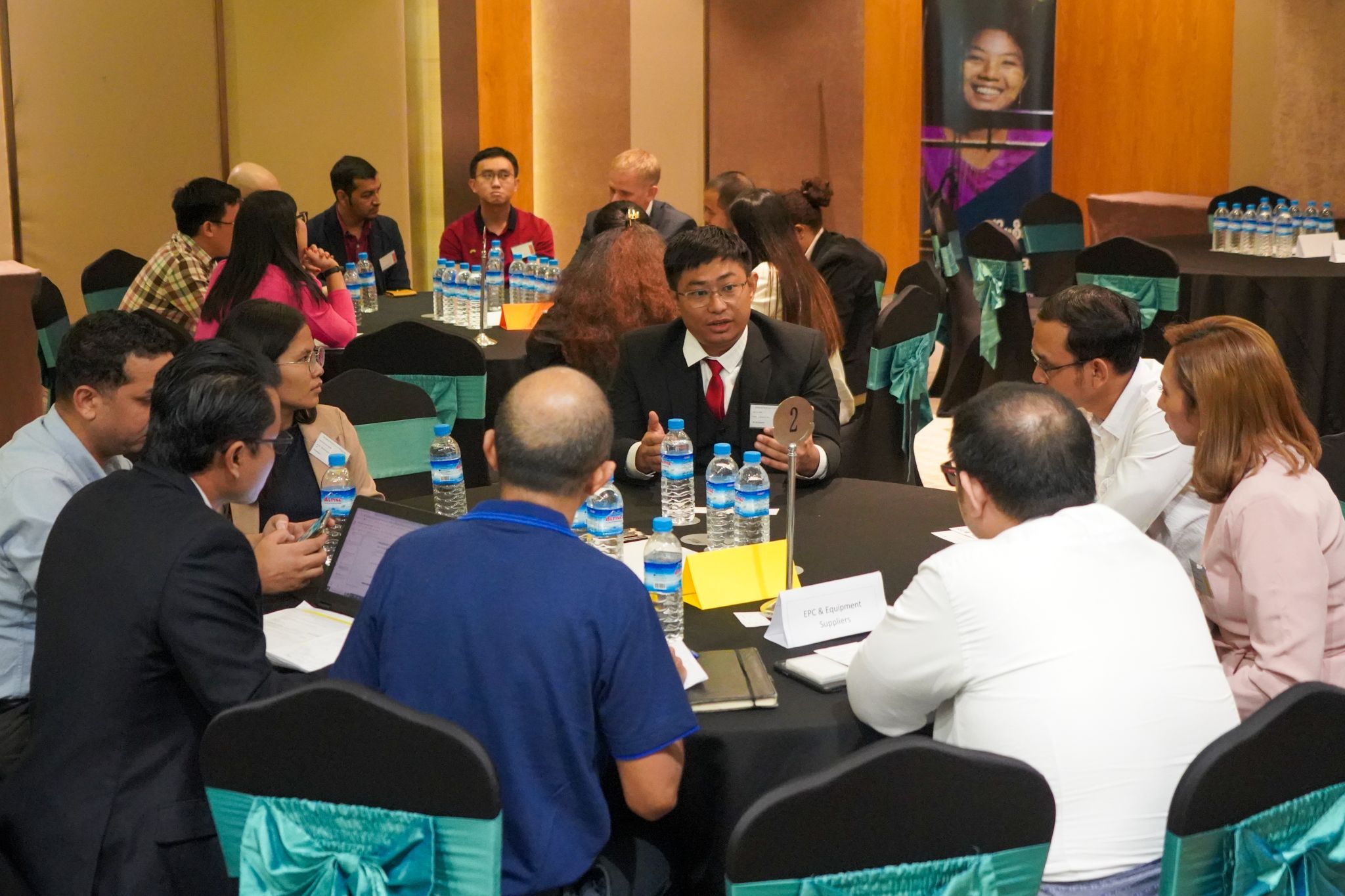PHOTO: Smart Power Myanmar
Stakeholders within the solar power industry participated in a productive discussion regarding bridging Myanmar’s energy gap, hosted by Smart Power Myanmar last month. A panel and two sets of roundtable discussions focused on identifying the challenges to progression in the renewable energy space in the country, and solutions for small and medium businesses. The discussion highlighted the importance of Decentralised Renewable Energy (DRE) Development for SMEs.
On the policy front, the pressing needs for the development of DRE solutions include a more streamlined and systematic way of accessing import licences for solar products and a requirement to implement quality control and assessment measures for imported solar products entering the country.
For improved access to finance
On the access to finance side, the attendees agreed that there needs to be ways to further de-risk and scale-up loan offerings for DRE projects. Yoma bank and Myanmar Citizens Bank, which both joined the interaction, expressed support for SMEs that need financing assistance in the renewable energy space. The results of the discussion show that the financial institutions are supportive of a practical risk guarantee programme, while taking solar panels as security for a loan is favourable.
Smart Power Myanmar is currently working with Yoma bank in support of catalytic capital for SMEs to invest and adopt solar-powered energy for their businesses. Smart Power’s support comes as a blended financing facility whereby it finances the guarantee with philanthropic funds, which enables the bank to issue a loan to the SMEs. It enhances the ability of businesses to secure a loan facility that would otherwise be unattainable without adequate collateral.
What’s hindering businesses to install solar?
While there is notable business interest to install solar-powered energy generation, the lack of a clear picture of a return on investment is something that businesses need to address, according to comments during the discussion. It was also noted at the roundtable that businesses may not consider solar as a priority for investment, even while it is important. The technical side of the details of solar power installation and operation that contributes to issues of solar power wastage was also discussed.
Possibility for enhanced coordination
Participants felt it would be more than helpful if an online platform providing on-the-spot budget estimation for solar power installation, could be developed. This would reduce the time and energy required to get budget quotations, said an attendee.
Also, the attendees wanted to see suppliers and distributors working together. Many would welcome the emergence of a hub for a supply of genuine solar materials.
Who’s in the market?
Last month, Myanmar conglomerate Dagon Group announced the launch of their sales and distribution of Huawei technology solar products. UAB Bank is offering a hire-purchase facility for those products.
Techno Hill, a solar microgrid developer from Myanmar, raised a debt facility of USD 400,000 in September last year. The investment was provided by impact investment fund, Pioneer Facility, towards a new 209 kW solar mini grid project in Southern Myanmar. Pioneer Facility is managed by Nexus for Development, an international non-profit institution that provides access to finance for clean energy and water solutions in Asia.
SolarHome is an active player in the Myanmar market providing installation of solar at homes, catering to the pay-as-you-go business model.
In another initiative, Smart Power Myanmar is helping households in rural areas to access electrification and grid extension by working with leading microfinance institutions, to help leverage their market presence and interest in making new loans. Smart Power Myanmar assistance includes detailed market research to identify villages interested to access finance to invest in their first grid connection and A partial risk guarantee on the MFI’s portfolio on energy access loans.


7 Comments